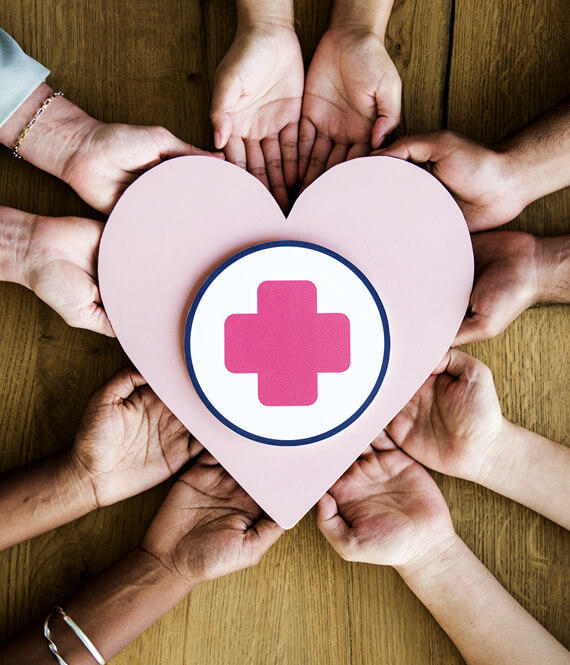
Public Health Workers Are NEEDED in 2024: 9 Public Health Concerns That Need To Be Addressed ASAP
We recommend helpful products in our articles. Read our full disclosure here. The content on this website is not intended to be a substitute for professional advice, diagnosis, or treatment.
As the COVID public health emergencies end around the world, certain health issues still threaten the well-being of people.
Many public health concerns must be addressed properly to safeguard the health of communities across the planet.
Experts define public health concerns as conditions affecting an entire population.
They differ from each other based on severity, prevalence, and communicability.
Also, some health issues are more likely to affect marginalized communities disproportionately.
It’s essential to address the following health problems ASAP.
Alcoholism
Excessive alcohol consumption leads to family dysfunction, domestic violence, and a wide array of societal problems.
6% of Americans are heavy drinkers, and drinking alcohol remains a prevalent addiction in the US.
Some 140,000 alcohol-related deaths happen every year in the country, while many people develop health conditions such as heart disease, liver cirrhosis, and liver cancer.
Public health experts can tackle this problem by educating the public about drinking in moderation.
They can engage in policymaking to discourage heavy drinking and create screening programs to identify people at risk for alcoholism.
Providing treatment and recovery options will also help people trying to quit manage withdrawal symptoms.
Obesity
Obesity was declared a pandemic before COVID-19, and it still affects one-fifth of American kids/teens.
Also, obesity costs the healthcare sector $170 billion each year in insurance claims.
However, public health experts can tackle this problem by educating people about healthy eating habits and the importance of physical activities.
Motivated individuals can also pursue a career in public health to spearhead this cause since obesity is a growing concern.
Distance learning opportunities such as an online MPH help aspirants fast-track their entry into public health careers and make valuable contributions to improving community well-being.
Drug abuse
With easy access to prescription drugs and illegal substances, opioid abuse has become a major public health concern in the US.
In 2017, almost 20% of Americans were battling substance abuse disorders, and these numbers have risen, especially because of the pandemic and its impact on people’s emotional health.
Drug addictions pose an ever more serious threat among schoolchildren and high schoolers.
Tobacco use is an underrated public health concern since many people don’t consider smoking a problem.
It is estimated that 480,000 deaths in the US annually are caused by cigarette smoke.
E-cigarettes and vapes can also endanger public health when they become fashionable among teens and kids.
Early intervention and drug prevention are two main methods to address this issue.
Also, easy access to rehab centers and support groups can control this problem.
Public health workers can implement needle exchange and overdose prevention programs to limit drug abuse.
Traffic accidents
Motor vehicle accidents are the number one cause of death for American teens.
Over 46,000 fatalities happen in the US because of car crashes.
Public health experts can address this problem by promoting seatbelt use.
Drunk driving is another reason behind vehicular collisions.
As a public health worker, you can work with law enforcement agencies to enforce stricter drunk driving laws, encourage the use of ride-sharing services to limit the number of vehicles on roads and educate people about the dangers of drunk driving.
Food insecurity
Proper nutrition is important for proper growth and development, particularly in children.
But 5.1 million households in the US suffer from very low food security in 2021, which means they didn’t have enough food to fulfill their nutritional requirements.
Food insecurity leads to different diseases, such as HBP, obesity, and cardiovascular complications.
Public health experts can resolve this issue by reducing “food deserts,” i.e., areas where people have very limited access to food.
Decreasing food waste, creating community pantries, and setting up nutrition assistance programs can make at-risk communities highly food secure.
HIV
HIV remains an oft-neglected public health issue in the world.
Even though we’ve come far away from the taboos associated with HIV, public health experts still have to fight some misconceptions regarding this disease.
Public health professionals can start by informing people that even straight people can get this disease, and HIV isn’t necessarily a death sentence.
However, HIV does disproportionately affect some marginalized communities, such as people of color (POC) and the LGBT community.
Public health workers can address this issue by educating people about safe sex practices, condom use, and pre-exposure prophylaxis (PrEP) medication.
HAIs
Hospital-acquired infections, or HAIs, affect patient outcomes and lead to excessive rehospitalization.
Public health experts can decrease HAIs by promoting hand hygiene, proper disinfection, and antibiotic stewardship (encouraging prescribers of antibiotics to follow evidence-based prescriptions).
Proper screening and isolating at-risk patients on time can prevent the spread of infections inside healthcare settings.
Moreover, people need to get vaccinated.
Disinformation
Many Americans are still hesitant about the COVID vaccine.
This vaccine hesitancy is just one example of how social media negatively impacts public perception and behavior.
Many lies about health-related topics spread on the internet like wildfire, which is why public health workers need to address this issue ASAP to safeguard the well-being of people.
Educating the public is the first step toward stopping disinformation from spreading.
Professionals must stay on top of healthcare-related communication on popular social media sites like Reddit, Facebook, and Instagram and actively counter misinformation and disinformation.
Mental Health Issues
1 out of 5 Americans right now are living with mental health problems.
Stress, anxiety, and depression became even more widespread because of COVID-19 and the ensuing social isolation.
Even healthcare professionals, such as RNs, weren’t spared the wrath of mental health decline; many nurses started to quit due to burnout.
Public health workers can reduce the stigma around mental illness via workshops, conferences, and awareness campaigns.
They can also try and make mental health services (particularly behavioral therapy and counseling) more accessible to the population and develop community-based mental health programs and support groups for people.
Conclusion
Socioeconomic development is greatly tied to the health of a population.
We need qualified public health experts to improve the health of communities by finding creative, effective, and long-lasting solutions to the public health concerns mentioned in this article.
Only by reducing the severity and incidence of these problems can we become more productive as a whole.
"We love to research problems, examine studies, analyze solutions, and share with you ideas that make life healthier. You can learn about us and our editorial standards here. Have suggestions or feedback to share? Send us a message!."













Leave a Comment